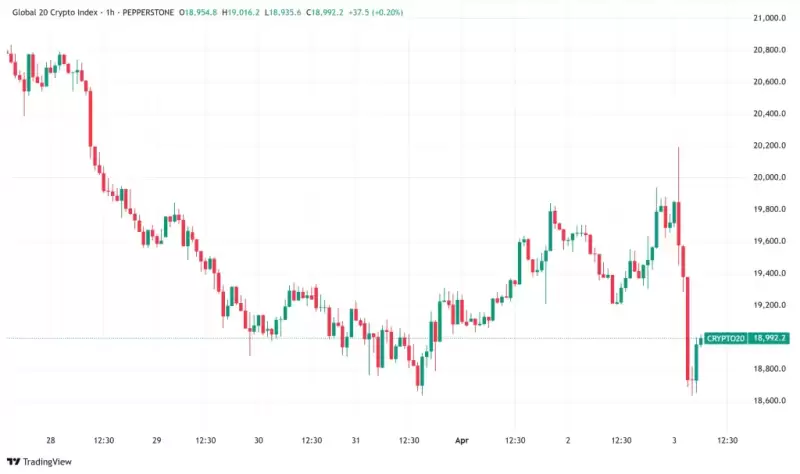 |
|
 |
|
 |
|
 |
|
 |
|
 |
|
 |
|
 |
|
 |
|
 |
|
 |
|
 |
|
 |
|
 |
|
 |
|
Cryptocurrency News Articles
Unified Ledger: Central Banks, Tokenized Deposits, and Digital Assets United on a Single Platform
May 07, 2024 at 05:08 pm
Amid discussions on central bank digital currencies (CBDCs), the Bank for International Settlements (BIS) has proposed a Unified Ledger that enables the integration of various forms of digital assets onto a single network. Experts from JP Morgan and Circle shared their perspectives on this concept during the BIS Innovation Summit. JP Morgan's Umar Farooq emphasized the need for a trusted and accountable transaction system, as opposed to public blockchains, while Circle's Dante Disparte raised concerns about geopolitical influences impacting cross-border payments and the fragmentation of global payments.

Unified Ledger: Transforming Central Bank Money, Tokenized Deposits, and Digital Assets into a Cohesive Ecosystem
In a pivotal development last year, the Bank for International Settlements (BIS) unveiled its vision for a Unified Ledger, a transformative concept that aims to seamlessly integrate central bank money, tokenized deposits, and digital assets onto a single, unified platform. This groundbreaking initiative seeks to address fundamental inefficiencies and foster programmability within the financial sector.
JP Morgan's Perspective on Public Blockchains and the Value of Accountability
JP Morgan's Umar Farooq, a prominent figure in the financial industry, shared his insights on the Unified Ledger concept during the recent BIS Innovation Summit. Farooq emphasized the pressing need for such a solution, citing the limitations of public blockchains for high-value transactions.
"Public blockchain ledgers are not suitable for large transactions at present," Farooq stated. He highlighted the lack of recourse in the event of errors or disputes, posing the question, "Who do I sue?"
Farooq stressed the importance of establishing a framework where financial institutions can engage in trusted transactions with some form of accountability. This rationale underscores the significance of the Unified Ledger and similar concepts like the Regulated Liability Network (RLN), mBridge, and Singapore's Global Layer 1.
Another concern raised by Farooq involves the proliferation of tokens on public blockchains. He argued that this token-centric approach creates barriers to convergence and detracts from the core principles of finance.
"The internet was developed as a public good," Farooq said, drawing parallels to existing financial infrastructures such as real-time gross settlement (RTGS) systems, Swift, and CLS. He advocated for an evolutionary shift towards viewing technology as a public utility rather than a means of financial speculation.
Circle's Observations on Marginal Enhancements and Geopolitical Influences
Dante Disparte, a senior executive at Circle, raised concerns about the narrow focus of many initiatives that prioritize banks while neglecting non-banks. Disparte highlighted the need for inclusivity, advocating for a seat at the table for all stakeholders.
Farooq acknowledged the regulatory implications of proximity to central banks, emphasizing the need for enhanced regulation to mitigate systemic risks.
Disparte presented two key observations regarding Unified Ledgers: the lack of significant improvements and the influence of geopolitics.
"Institutions often seek marginal enhancements," Disparte said. However, he emphasized the necessity for both incremental and transformative innovations, as articulated by BIS head Augustin Carstens.
Disparte also suggested that lack of urgency and profit motives may contribute to the slow pace of innovation in money movement. He noted that velocity in the banking system is a premium service, and that traditional finance continues to lack adequate execution capabilities outside of business hours.
Geopolitics emerged as a significant factor in Disparte's analysis. "Cross-border funds integration of this type is often aligned too far for national security interests," he said. This geopolitical landscape poses challenges and may drive fragmentation in global payments.
The Unified Ledger concept and the BIS's mBridge initiative, which involves China, highlight the complex interplay between technology and geopolitics. Technology serves as an enabler, but geopolitical considerations can shape the direction of innovation.
Conclusion: A Paradigm Shift Towards Unified and Accountable Financial Infrastructure
The Unified Ledger represents a bold vision for the future of finance, aiming to unify central bank money, tokenized deposits, and digital assets on a single platform. This transformative concept addresses the limitations of public blockchains and emphasizes the importance of accountability and inclusivity.
However, the road ahead is not without challenges. Marginal enhancements, geopolitical influences, and the need to balance innovation with regulation are all factors that must be carefully considered.
As the financial industry continues to evolve, the Unified Ledger concept serves as a catalyst for a paradigm shift towards a more efficient, transparent, and accountable financial ecosystem.
Disclaimer:info@kdj.com
The information provided is not trading advice. kdj.com does not assume any responsibility for any investments made based on the information provided in this article. Cryptocurrencies are highly volatile and it is highly recommended that you invest with caution after thorough research!
If you believe that the content used on this website infringes your copyright, please contact us immediately (info@kdj.com) and we will delete it promptly.
-

-

-

-

-

-

-

-

- Daily Crypto Signals: Bitcoin Tumbles from $88.5K, XRP Awaits Ripple Effects of New Trump Tariffs
- Apr 03, 2025 at 10:30 am
- The cryptocurrency market displayed a mixed landscape on April 2nd, 2025, as Bitcoin, Ethereum, XRP, and other altcoins grappled with the ripple effects of newly announced US tariffs
-




























































